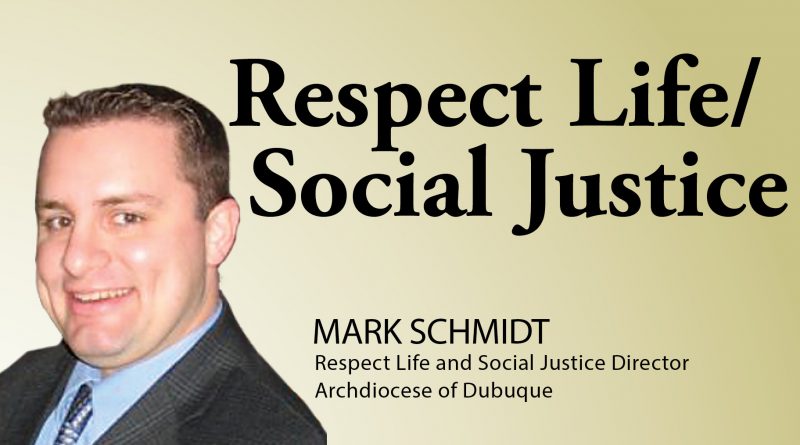Caring for creation in light of three fundamental relationships
Be fertile and multiply;
fill the earth and subdue it.
Have dominion over the fish of the sea, the birds of the air,
and all the living things that move on the earth.
God also said:
See, I give you every seed-bearing plant all over the earth
and every tree that has seed-bearing fruit on it to be your food;
and to all the animals of the land, all the birds of the air,
and all the living creatures that crawl on the ground,
I give all the green plants for food.”
—Genesis 1: 28-30
At the Easter Vigil we hear the story of creation from the first chapter of Genesis. God created the world and placed humanity in the Garden to steward his creation; calling all of it, including us, good.
Pope Francis, in his encyclical “Laudato Si,’” shares an important insight into the creation story that we ought to consider when it comes to the Catholic social teaching principle of care for God’s creation:
“The creation accounts in the book of Genesis contain … profound teachings about human existence and its historical reality. They suggest that human life is grounded in three fundamental and closely intertwined relationships: with God, with our neighbor and with the earth itself. According to the Bible, these three vital relationships have been broken, both outwardly and within us. This rupture is sin.”
Understanding these relationships and the role sin plays in harming these relationships are essential to fulfilling our responsibility as stewards of the gift of creation. When we see the care for God’s creation primarily within the context of relationship, it personalizes the issues at hand. They are no longer abstract principles or scientific data devoid of human connection. We must ask ourselves how we can strengthen our relationship with God, our neighbor and the earth itself and how we might heal the harm done to those relationships. How do our actions honor God, support our neighbor, and steward creation?
God has given us a great gift in creation. If I were to give someone a gift and upon receiving it he or she tossed it into the corner, treated it carelessly, or, right in front of me, listed it on eBay, how might I feel about that? How might these actions reflect the person’s respect for the relationship between us? It is likewise with our relationship with God and the gift of creation given to us. If we are careless with it or exploit it or refuse to share it with others we are telling God that his desire for us and the gift he has given to us means very little. But if we care for it, use it in the way God has intended and treat it in such a way that we may hand it down to our children and their children, we show God the respect we have for him and our gratitude for the gifts he gives us.
How might our approach to the environment be influenced if we place the dignity of our neighbor at the forefront of our discussions? If I live at the top of a bluff with a row of houses below what would it mean for me to dump my trash over the edge, careless of how it might affect those living below the bluff? How does my action harm my relationship with my neighbor? What about cities like Flint, Michigan, where residents have been without clean and safe water since April 2014. There have been a dozen deaths due to Legionnaires Disease, an increase in the rate of miscarriages and infant mortality, among many other health issues resulting from the crisis. How are we as a society caring for our neighbor in such instances? We show our love and care for our neighbor when we personally treat the environment around us with respect, reduce our own consumption or overconsumption of natural resources and ensure that we are not carelessly polluting our community. But we also must consider systemic issues within our communities, our economy, and our nation. By advocating for laws and policies that require everyone to reduce air, water and land pollution, especially those who produce the majority of pollution, we show our neighbors that we care about them, whether such pollution directly affects us or not. If a river in Texas is poisonous, I should care about that as much as I do if a river running through my own back yard is. After all, the people who live by that polluted river are my neighbors, even if they live thousands of miles away.
Looking at care for God’s creation through the lens of relationships with God, our neighbors, and the natural world is a helpful way forward in the dialogue that our nation and world is currently having with regards to climate change, access to clean air and water, pollution, exploitation of resources, etc. The closer we develop our bonds with God and one another, the more readily we empathize with those impacted by personal acts and public policy and our willingness to do something about it. Creation is not ours to do with as we please. It is a gift which we have a responsibility to care for as a principle of our faith.
The Formation for All session for Easter is on Care for God’s Creation. To participate in sessions available for all ages go to: dbqarch.org/rlsj/formation.




